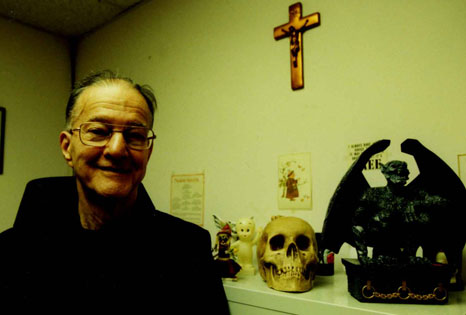By Harrison Leone
Managing Editor
Pink Floyd is, by any measure, one of the greatest and most influential musical acts of the 20th century. They have sold over a quarter of a million albums worldwide, including the second bestselling record in history, “Dark Side of the Moon,” which stayed on the Billboard top 100 chart for an incomprehensible 741 weeks.
Their space age sounds, iconic album covers and legendary laser light shows are all evocative of an era when prog rock was king. Roger Waters, David Gilmour and Syd Barrett stand as rock and roll pioneers, producing some of the most recognizable music in the last half-century. Forty-seven years after their first album, “Piper at the Gates of Dawn,” Pink Floyd has endured personnel changes, weathered swings in musical trends to continue to be successful for nearly two generations.
The band released their first new album in a decade, titled “Endless River,” on Nov. 7. It has been confirmed as their last album, and is a collection redone and re-mastered tracks that were cut from their 1994 record, Division Bell. In the words of front man David Gilmour, “Endless River” was a Pink Floyd record “for the 21st century;” Gilmour also made a point of mentioning that “Endless River” was never meant to repeat the commercial or critical success of “Dark Side of the Moon,” “Wish You Were Here” or “The Wall.” “Endless River” does not, of course, compare to these records, as only a select few other records can be mentioned in the same breath as these certified masterpieces. The album is also a skeleton-crew production, featuring only Gilmour, founding member Richard Wright and drummer Nick Mason. Gilmour has called the album a “swan song” for Wright, who passed away during production.
It is obvious from the outset that “Endless River” was never meant to be the cultural sensation some other Pink Floyd albums have been. There are no lyrics until the 14th song, which, bizarrely enough, is a recording of an excerpt from a Stephen Hawking lecture. There are no original lyrics until the final song on the track, with David Gilmour’s wife credited as the song’s lyricist. Anyone looking for a Wall-esuqe narrative, or a concept album dealing with the rigors of fame, will be sorely disappointed in the lack of lyrics on “Endless River.”
The first fifty minutes are filled with extremely Floyd-ian instrumentals that, for most of the album, sounds like they could be coming out of a white noise machine on the “ambient” setting. Fans of extremely exaggerated guitar solos and horn accompiantment will be pleased with the sampling presented on “Endless River.” Most of the album is done at a slow, murmuring pace, that occasionally veers into dark, foreboding and shiver-inducing registers.
Certain parts of “Endless River” bear noticeable resemblance to other Floyd songs from the past. The intro to Allons-y, for example, sounds nearly indistinguishable to “Run Like Hell,” so much so that I had to double-check Spotify to see if I had accidently queued up the wrong album. Indeed, the album is familiar to a fault; if you played the second track, “It’s Up To You,” alongside the opening instrumentals of “Shine On You Crazy Diamond,” it would become difficult to tease out the differences at some points.
The track lengths are strangely uneven, with several songs coming in at under two minutes while others stretch beyond the six minute mark. Although it hardly matters how long a certain song is when nine-tenths of the album is basically one long track of stylized elevator music. The album hits its high point when it breaks away from its baseline level of low melancholy during the seventh song on the track list, “Anisina.” The song soars out of the doldrums with an energized piano backing an inspiring horn section. “Anisina” feels like a throwback to the best days of Pink Floyd, before internal differences tore the band apart and they morphed into a bloated parody of themselves.
While “Endless River” offers some musical merit of its own, its greatest contribution is the reintroduction of Pink Floyd into the dialogue of popular music. If the album itself is something of a disappointment–a tempered one, with some positives-it demands remembrance of the greatness of Pink Floyd past. Provoking a dormant appreciation for the last guard of the British Invasion is a worthy accomplishment.
It’s impossible to listen to “Endless River” and not feel an extreme compulsion to scroll through iTunes and dust off “Brain Damage,” “Hey You “or “Welcome to the Machine.” A newfound appreciation for the work of Barrett, Waters, Gilmour, Wright and all the countless producers and sound editors of Pink Floyd’s history is evoked within funereal chords of “Endless River.”
David Gilmour has made it certain that this will be the band’s last album, and it will not be accompanied by a tour. This is the way the Floyd ends, not with an orchestral crash giving life to quasi-philosophical poetry, but with an hour of acid-washed mood music.








